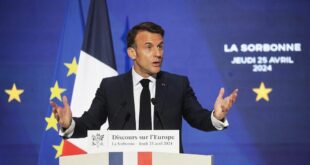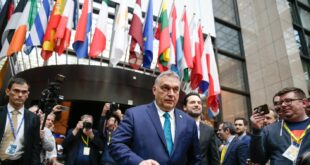The appointment of a former ethnic Albanian fighter as Macedonia’s defence chief has angered the party representing war veterans.The opposition Dignity party, which represents police and army veterans who fought Albanian guerrillas in the 2001 conflict, has protested over the appointment of Talat Xhaferi as new defence minister.
Xhaferi, a key figure on the ethnic Albanian side in the 2001 conflict, took office on Tuesday.
This is a “humiliating act” and a “national catastrophe”, said the head of Dignity, Stojance Angelov, blaming Prime Minister Nikola Gruevski for the decision.
The appointment of Xhaferi was part of a reshuffle of ethnic Albanian cabinet ministers, previously agreed between the main ruling VMRO DPMNE party and its ethnic Albanian partner, the Democratic Union for Integration, DUI.
The reshuffle occurred after several ethnic Albanian ministers quit to run as mayoral candidates in the March local elections.
“I am sure that I will contribute to the development of the army,” Xhaferi said, adding that his goal was to make the armed forces “a symbol of coexistence, tolerance and respect for differences”.
Xhaferi replaces Fatmir Besimi, his colleague from the DUI, who will now become vice-prime minister in charge of European affairs.
Besimi was a more acceptable figure to Macedonian war veterans because he took no active participation in the 2001 conflict.
The fighting between the now disbanded National Liberation Army, NLA, and the security forces ended the same year with the signing of a peace accord that gave more rights to Albanians who make up a quarter of the population.
The ex-fighters were granted an amnesty and shortly after formed the DUI, which has since become the most popular ethnic Albanian party in Macedonia.
In a move that further annoyed the veterans, the DUI’s Facebook page published a picture of soldiers saluting Xhaferi at the takeover ceremony with the words: “The NLA is now in charge of the Army”.
 Eurasia Press & News
Eurasia Press & News



